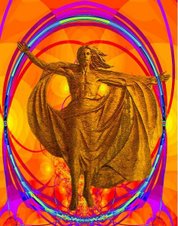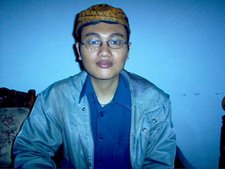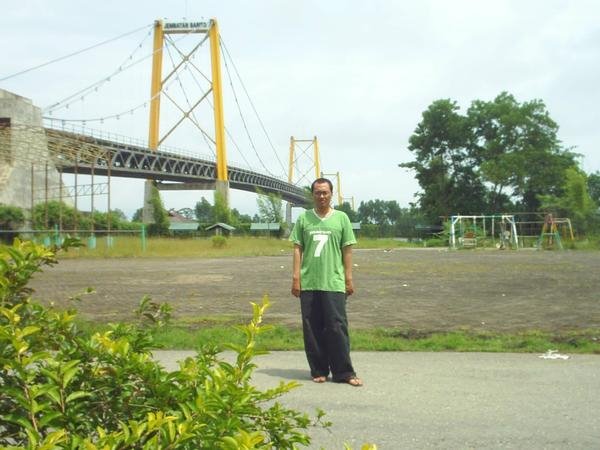
As a cinematic subspecies, films about teachers working with throwaway kids tend to follow a predictable arc involving conflict and resolution, smooth beats and bitter tears. Sometimes, as with “Dangerous Minds,” the 1995 film in which
Michelle Pfeiffer uses her cheekbones to disarm high school toughs, the results are risible. Sometimes, as with the egregiously offensive “187” (1997), wherein
Samuel L. Jackson makes like
Charles Bronson with some bad students, it’s an argument for universal home schooling.
“Freedom Writers,” a true story about a white teacher trying to make a difference in a room crammed with black, Latino and Asian high school freshmen, has the makings of another groaner. One worrisome sign is
Hilary Swank, the two-time Academy Award winner with the avid smile who recently vamped across screens as a femme fatale in
Brian De Palma’s period thriller “The Black Dahlia.” Ms. Swank is an appealing actress of, at least to date, fairly restricted range. In her finest roles — a transgender man in “Boys Don’t Cry,” a boxer in “Million Dollar Baby” — she plays women whose hard-angled limbs and squared jaws never fully obscure a desperate, at times almost embarrassingly naked neediness.
In “Freedom Writers” Ms. Swank uses that neediness to fine effect in a film with a strong emotional tug and smartly laid foundation. She plays Erin Gruwell, who in 1994 was a 23-year-old student teacher assigned to teach freshman English at Wilson High School in Long Beach, Calif.
Twenty-two miles from downtown Los Angeles, this ethnically diverse port city, birthplace of both
Bo Derek and
Snoop Dogg, is south of Compton (home of N.W.A.), right at the edge of Orange County (home of “The O.C.”). In 1992 the Rodney King riots that rocked Los Angeles spilled into Long Beach; recently the city made news for an alleged hate crime involving black teenagers charged with severely beating three white women.
By the time Erin steps into her classroom, a scant two years after the riots, the climate inside is at once frosty and scorching. Turned out in a cherry-red suit and black pumps, her strand of pearls gleaming as bright as her teeth, Erin cuts an unavoidably awkward, borderline goofy figure.
The students are understandably skeptical, excruciatingly contemptuous. From where they sit, slumped and hunched, some with their backs literally turned away from the front of the room, Erin looks like the stranger she is. She’s an interloper, a do-gooder, a visitor from another planet called Newport Beach, and the class sees through her as if she were glass because the writer and director
Richard LaGravenese makes sure that we do too.
Funny how point of view works. If so many films about so-called troubled teenagers come off as little more than exploitation, it’s often because the filmmakers are not really interested in them, just their dysfunction. “Freedom Writers,” by contrast, isn’t only about an amazingly dedicated young teacher who took on two extra jobs to buy supplies for her students (to supplement, as Mr. LaGravenese carefully points out, a $27,000 salary); it’s also, emphatically, about some extraordinary young people. In this respect Mr. LaGravenese, whose diverse writing credits include “The Ref” and “The Bridges of Madison County,” appears to have taken his egalitarian cue from the real Erin Gruwell, who shares author credit with her students in their 1999 book, “The Freedom Writers Diary,” a collection of their journal entries.
Mr. LaGravenese keeps faith with the multiple perspectives in the book, which includes Ms. Gruwell’s voice and those of her students, whose first-person narratives pay witness to the effects of brutalizing violence, dangerous tribal allegiances and institutional neglect. The film pops in on Erin and her increasingly troubled relationship with her husband, Scott (
Patrick Dempsey), and there’s a really lovely scene between the two that finds them talking ruefully over a bottle of wine about the divide between fantasy and reality in marriage, a divide one partner tries to bridge and the other walks away from. But while we keep time with Erin, we also listen to the teenagers, several of whom tell their stories in voice-over.
Among the most important of those stories is that of Eva (the newcomer April Lee Hernandez), whose voice is among the first we hear in the film. Through quick flashbacks and snapshot scenes of the present, Eva’s young life unfolds with crushing predictability. From her front steps, this 9-year-old watches as her cousin is gunned down in a drive-by shooting. Later her father is arrested; she’s initiated into a gang. One day, while walking with a friend under the glorious California sun, a couple of guys pull up in a car and start firing in their direction. Eva dodges bullets and embraces violence because she knows nothing else; she hates everyone, including her white teacher, because no one has ever given her a reason not to.
In time Eva stops hating Erin, though the bullets keep coming. It’s a hard journey for both women, one that includes other students, most of whom are played by actors who look too old for their roles and are nonetheless very affecting. None of these actors are outstanding, but two are memorable: the singer Mario, who plays an angry drug dealer, Andre, and another newcomer, Jason Finn, whose big, soft, moon face swells with fury and vulnerability as a homeless teenager named Marcus.
Mr. LaGravenese isn’t a natural-born filmmaker, but he’s a smart screenwriter whose commitment to characters like Marcus makes up for the rough patches in his directing. Like Ms. Swank, who shares the screen comfortably with her younger co-stars, he gives credit where credit is due.
“Freedom Writers” is rated PG-13 (Parents strongly cautioned). There is some gun violence and adult language.



















































